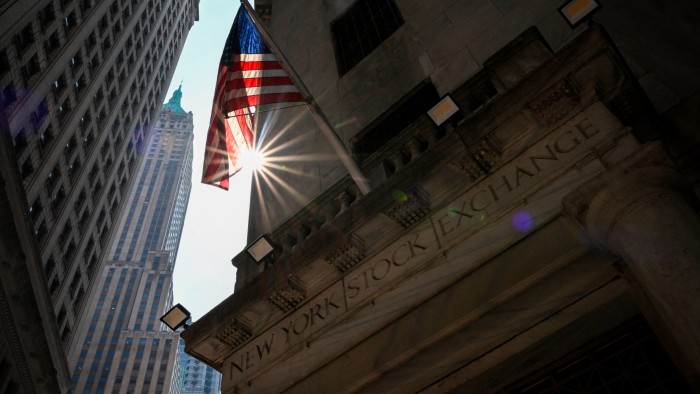Unlock the Editor’s Digest for free
Roula Khalaf, Editor of the FT, selects her favourite stories in this weekly newsletter.
The writer is former global head of public credit at Aviva Investors
There is so much hype about AI’s potential to transform industries by boosting efficiency and productivity, reviving lacklustre economic growth as the internet did a generation ago. Some of this is coming from those who work in asset management, but others should also look closely at the impact on their own industry. It is likely to be greater than — and different to — what many expect.
In traditional asset management, the need for AI transformation is particularly urgent. Managers have been under margin pressure for some time, exacerbated by the rise of low-cost passive investing. They must prove their abilities to produce alpha — above market returns — at increasingly lower costs, to offset the diminishing fees clients are willing to pay.
In response, asset managers are accelerating investments in AI. On the client side, firms are redesigning digital interfaces to deliver hyper-personalised insights, automated reporting and on-demand portfolio analytics — all enabled by natural language models. Meanwhile, within investment teams, quants and data scientists are being embedded directly alongside portfolio managers to enhance decision-making. They are building AI models that can scan data — including earnings calls, regulatory filings and even satellite imagery — to extract insights that would be impossible, or prohibitively expensive, for humans to generate. They are building proprietary AI platforms to enhance performance, protect intellectual property, safeguard data and reduce dependence on generic large language models.
This all makes complete sense. But what if AI doesn’t just enhance active investing, but renders much of it obsolete? What if a new threat lies in the shadows, ready to totally upend investment management?
While asset managers still believe that machines cannot replace humans in making investment decisions in equal fashion, the hard truth is that they don’t need to. They may underperform the best (or even mediocre) portfolio managers. But if they do so at a fraction of the cost, the value proposition might be superior. If they can replace 80 per cent of a team of investment professionals, the value proposition could be superior.
Active investing is costly. You need teams of analysts, economists and portfolio managers working together to beat the market. And even then it’s not consistent, especially when taking costs and fees into account.
Unsurprisingly, there is a reluctance to explore the AI opportunity as a real game-changer. No one wants to admit that their job could be made redundant — not least one where there is such a handsome reward for experience and insight. Yet AI has the potential not just to reshape how investment ideas are created and executed. It has the potential to expose the inefficiency of large investment teams, and also expose the mediocrity that has blighted part of the industry.
Instead of merely using AI to elevate the investment process, we could use the knowledge and decision patterns of the most successful investment professionals to train the machines. Machine learning can be taught to interpret new information, adapt to changing conditions, and even learn from past mistakes. In doing so, we can begin to replicate and eventually enhance the core functions of investment decision-making: evaluating fundamentals, managing risk, responding to macro events, constructing portfolios, taking risk.
Another compelling promise lies in what it leaves behind: the biases that so often undermine human decision-making. What if a portfolio managers’ judgment could be codified, audited and improved on, over time? But this doesn’t mean full replacement. In this approach the fund manager and analyst don’t disappear, but their roles change. They shift from decision maker to model builder and evaluator. A layer of human judgment may still be needed but over time, as technology develops, even this may fade. And so, the need for armies of analysts falls away.
It’s already starting to happen elsewhere. Venture capital firms are using machine learning to replicate early-stage due diligence at scale. Why can’t asset managers encode star portfolio managers into models and rebuild their alpha factories?
Passive investing redefined the industry by proving that cost and scale could outperform complexity and conviction. Now, machine learning offers active managers a similar opportunity: to rebuild their value proposition around systematic, scalable and lower-cost alpha. What if the most valuable alpha of the future doesn’t come from a star portfolio manager, but from the adaptive model they trained?
